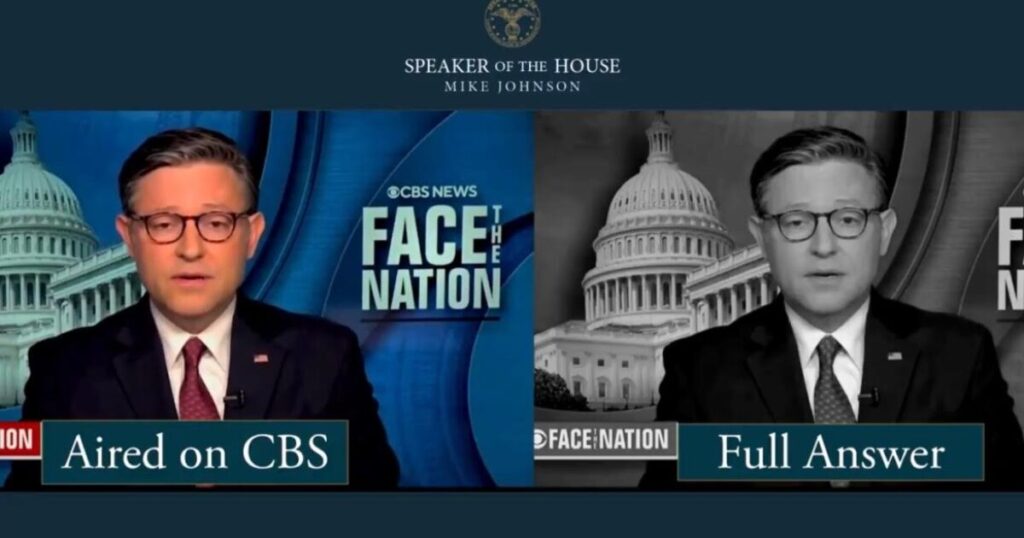In recent events, CBS News has found itself at the center of controversy after an interview with House Speaker Mike Johnson was selectively edited, raising questions about media bias and integrity. The issue became prominent when Speaker Johnson revealed that CBS trimmed five crucial minutes from a nearly 15-minute interview. This editorial decision has been perceived as part of a broader trend where CBS allegedly favors Democratic narratives while undermining Republican perspectives. Johnson took to social media to expose the selective editing, insisting that the omitted segments included significant criticisms directed at the Biden-Harris Administration regarding its response to Hurricane Helene, among other issues.
One of the critical points Johnson highlighted was the struggles faced by Hurricane Helene victims in North Carolina. According to him, victims lamented that they were still waiting for essential resources from the Biden-Harris Administration two weeks after the hurricane’s landfall. Johnson accused CBS of completely omitting this first-hand account, arguing that it was an attempt to downplay the administration’s failures and pacify the public’s concerns regarding disaster response. His claims underscore a growing perception that major media outlets may not be accurately or fully representing issues detrimental to Democratic leaders.
In addition to the hurricane response, Johnson critiqued the Biden administration for its legal actions against Virginia Governor Glenn Youngkin, who has been attempting to purify the state’s voter rolls to prevent non-citizens from voting. Johnson asserted the necessity of similar initiatives across other states, criticizing the federal government for attempting to impede Youngkin’s efforts through lawsuits. By framing this story, Johnson sought to illuminate what he describes as an urgent issue of election integrity, a priority for the Republican agenda. However, the editorial choices made by CBS obscured these important topics, according to Johnson and his supporters.
Speaker Johnson further elaborated on election concerns by referencing the SAVE Act, passed by the House to ensure that only American citizens vote in elections. His commentary pointed to a broader narrative that accused the Biden-Harris Administration of exacerbating immigration issues, allowing millions of illegal aliens into the United States. Johnson claimed that CBS’s coverage focused disproportionately on past election controversies rather than the present challenges related to safeguarding electoral integrity. This line of reasoning aligns with a growing Republican narrative that emphasizes stricter voting laws as a response to perceived threats in election processes.
Moreover, this instance of selective editing is not isolated. Earlier, CBS’s “60 Minutes” faced scrutiny for manipulating Vice President Kamala Harris’s responses in an interview to create a more coherent portrayal for the audience. Critics have noted that CBS spliced her answers in a way that misrepresented the original context, leading to allegations of journalistic malpractice. CBS has faced calls for transparency regarding the unedited transcript from Harris’s interview, as many have questioned the ethics of such editing practices under the guise of news reporting.
The ongoing scrutiny of CBS News raises broader concerns regarding media ethics, accountability, and bias in reporting. As audiences increasingly turn to various media platforms for information, the integrity of news outlets remains crucial for maintaining public trust. The implications of selective editing extend beyond individual interviews, prompting a required dialogue on the responsibilities of media organizations in conveying comprehensive and impartial coverage. The controversies surrounding CBS may influence public perception and engagement with the media landscape, sparking a renewed focus on the accountability of journalistic practices in an era marked by deepening political divides and information wars.

